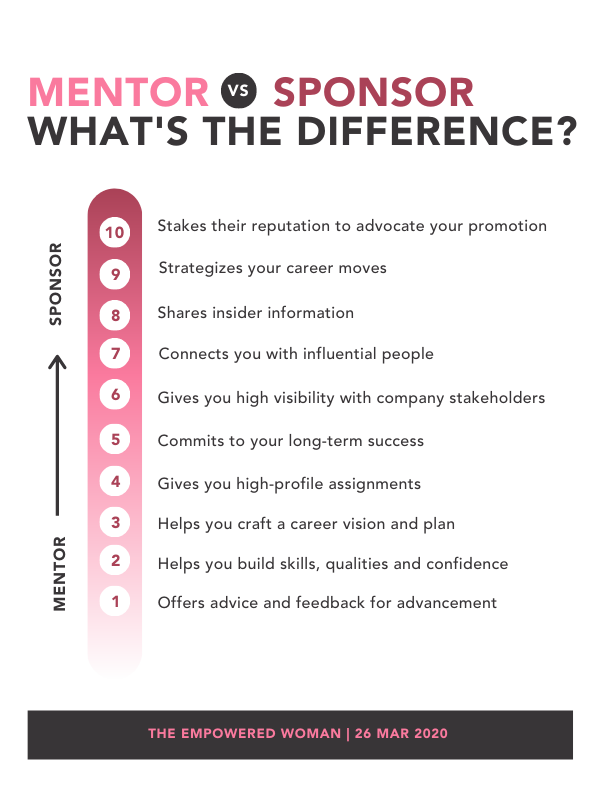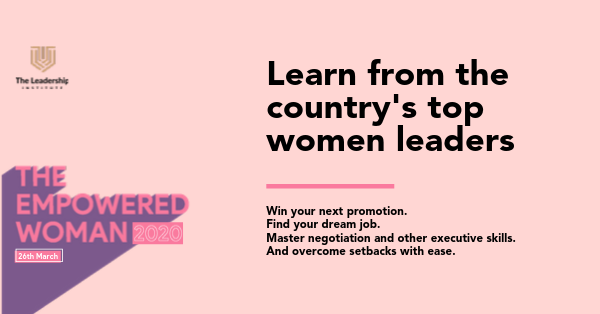Understanding Sponsorship and Why it’s the Best Strategy for Women to Advance in Leadership
The latest Women in the Workplace Report by McKinsey & Company highlights an increasing number of organisations who are seeing the value of having more women in senior leadership roles. While this is a move in the right direction towards gender diversity, women continue to be underrepresented at every level.
The study has identified that the biggest obstacle to women advancing in their careers is not at the “glass ceiling”, but at the lower rungs of the corporate ladder – the first step from staff member to manager.
To fix the “broken rung”, women need stronger support to access stepping-stone jobs. A more deliberate focus on career sponsorship is one strategy to help more women rise to the top and achieve gender parity.
Mentor vs Sponsor: What’s the difference
Simply put, mentors advise while sponsors advocate. The difference is also in the level of support. According to Herminia Ibarra, Professor of Organizational Behavior at London Business School and author of Act Like a Leader, Think Like a Leader –
“In a mentoring relationship, the mentor provides personal advice and support privately, with no more at stake than the time invested. While a classic sponsorship relationship, the sponsor advocates for an individual, typically in a succession contest for a significant role, with his or her reputation at stake.”
A sponsor can certainly make or break a career much more than a mentor. Here’s a quick guide to help you understand the difference and strategise your career growth.

Career Checklist
Take stock of your career and determine whether sponsorship is the right approach to your professional development by answering these questions –
- Who is the highest-ranking, most influential leader in the organisation who knows you?
- Do you work well together?
- Would they be willing to vouch for your talent?
- If those who know you and your work are not powerful enough, can they connect you with someone who is?
- Who can you approach for high-level assignments?
- Who can introduce you to high-level decision makers?
- How will you advance to the next notch?
- Who can help you get there?
On the flip-side, becoming a sponsor yourself might even be the better strategy to advance in your career. If you build a reputation for sponsoring other women to succeed in your organisation, you are more likely to rise to the top as well.
And so, ask yourself –
- Who do you bring along with you on the way to the top?
- How will you help sponsor more women to succeed?
- Have you identified high potential women proteges to sponsor within your team?
Learn how you can sponsor and empower the next generation of female leaders from the country’s most influential women in business. Reserve your spot for The Empowered Woman 2020.



